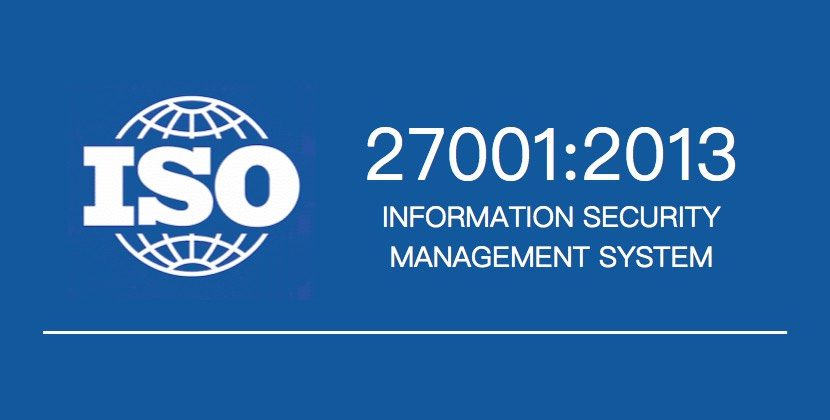
Hansel Quek (Chief Risk & Compliance Officer, TASConnect) held various key roles in the risk management space across the financial services industry and Big Four, where he led risk & compliance engagements, strategy and developed due diligence for mergers & acquisition of companies for different sectors.

In 2022, as US, UK and allied nations continue to ramp up sanctions on Russia, this will have an impact on the flow of goods, services and financial market activities globally. If we look at the consequences of these sanctions on financial, commodity and consumer market, the following points start to emerge.
Restrictions on certain Banks and transactions (including access to USD and other currencies) by excluding them from the SWIFT payment system
After much deliberation, a cohort of nations including EU, US, Canada and UK and other states agreed to ban a number of Russian banks from the Society for Worldwide Interbank Financial Telecommunications (SWIFT) international payment messaging system. If we peer in closer, seven Russian banks were removed from the global financial system but access of other Russian banks including two Russian key lenders Sberbank and Gazprombank were exempted.
The two key lenders were exempted because most of the payments linked to oil and gas were handled by them, which the EU heavily depends upon for its industrial and domestic needs.
Nevertheless, as for alternatives, Russia may reroute their transactions through China’s own Cross-border Interbank System (CIPS) and Russia’s own System for Transfer of Financial Messages (SPFS). However, they come with their own pros and cons.
Arising from this, there are some very visible effects of these sanctions in the aftermath. The complete cutoff from the global financial system means that a portion of global trade, specifically based on Russian consumption and export, will be severely affected.
Russia imports heavily from Netherlands and Germany, which will lead to an impact on the earnings of these two countries. On the other hand, the selective ban – as referenced above – keeps the EU imports of energy products (crude oil, natural gas and solid fossil fuels amongst others) from Russia in the green, for now.
Restrictions on Russian Central Bank and its sovereign debt
The sanctions on the Russian Central bank are mainly directed towards its ~630 USD billion in reserves. Restricting its usage means cutting off Russia’s ability to finance the ongoing invasion. It also means restricting its ability to bolster its currency, the Ruble. Indeed, since the sanctions have gone into effect, the Ruble has fallen to historic lows, almost 40% down from pre-invasion levels.
This has had widespread effects on the domestic movement of money in the country. Interest rates have been hiked to 20%. Locally, there has been a limit of 10,000 USD (in any currency) imposed on holders of Forex accounts, with any additional withdrawals in Rubles. Basically, the ability of the Russian consumers to move their assets to more stable currencies has been hamstrung entirely. Meanwhile, the Russian stock market remains closed.
Several rating agencies and banks have been revising their ratings on Russia’s creditworthiness. Fitch, JP Morgan, Moody’s, S&P and more have lowered their credit ratings and the sovereign debt outlook by several notches, calling “default” imminent. If that happens, it’ll be the first time since 1998.
Export controls aimed on high-tech products, technology components and parts
The US Commerce department had also imposed a set of exacting controls on technology products including military technologies and products through its Bureau of Industry and Security, thereby severely hampering Russia’s access to these technologies needed to further its military capabilities.
These are aimed at Russia’s defense, aerospace and maritime sectors which also means that the entire value chain in defense technologies has been restricted from Russian access. This includes semiconductors, computers, telecommunications, information security equipment, lasers, and sensors.
Following this, the EU, Japan, Australia, United Kingdom, Canada, and New Zealand have also announced their plans to impose similarly targeted restrictions. This is expected to block Russia’s exports of defense equipment, hinder the manufacturing base for the same and stop its military ambitions by a fair extent.
Restrictions of imports from Russia
A preliminary look shows that Russia is a leading exporter of oil, natural gas, wheat and metals. The US has already imposed a ban on oil, natural gas and petrochemical products from Russia, the EU and UK are set to follow.
In anticipation of the same, already strained global supply chains have been run into overdrive. Oil prices are up 60% year-to-date, wheat prices have hit record spikes of 70%, and prices of nickel and palladium have skyrocketed to historic highs.
The corresponding effects on production of plastic, steel and other co-dependent industries has been immense.
Freezing of visas (travel ban) and assets of corporates, banks and individuals (including cargo ships on the waters)
Sanctions on individuals, including members of Russia’s government, industry magnates and oligarch’s have been aimed at their assets including offshore bank accounts, properties around the world. Their visas have been revoked and many have been stuck at their current places.
The list extends to nearly 160 oligarchs and lawmakers, and their relatives. The ban also extended to their respective companies, thus causing many countries to actively seize, restrain and stop servicing ongoing businesses owned by these individuals.
Arising from the above, this means that exports of metals, oil and other commodities have been affected even without considering the already existing net of sanctions.
Airspace restriction
Airspace restrictions have gradually been added to the set of sanctions imposed. This has had two broadly defined avenues – banning Russian owned/operated aircraft in sovereign airspace (Canada, the European Union and several other European nations, including Switzerland have already put this into effect) and banning international airlines and cargo aircraft from flying in Russian/hostile airspace, thus raising risks of price spikes.
The Kremlin has retaliated with sweeping bans on all EU countries, and others such as the U.K., Canada and Switzerland.
This means that transcontinental flights are having to take longer routes and, in some cases, have cancelled them entirely. Routes from the West to Asia fly over the very same Russian airspace and have been affected the most by this. Air fuel prices and costs are likely to increase as a result, leading to the global aviation recovery taking a hit as it recovers from a Covid induced slowdown.
Along with these broad moves, there have been pullouts by several global players, including leading F&B brands, oil companies, banks, payment firms and consumer brands from Russia’s markets. As a result, the past few weeks have seen a rout in global stock market indices and investor wealth taking a significant hit.
This loss of trade, shooting prices and a hit to the movement to goods, services and cash is unprecedented. The sheer weight of these sanctions also means that the Russian economy is in shambles. Trade partnerships are being rewritten overnight, with the global supply chain facing bottlenecks of immense magnitudes.
The aftershocks of these sweeping sanctions will reverberate for a while, long after military actions have ceased.





